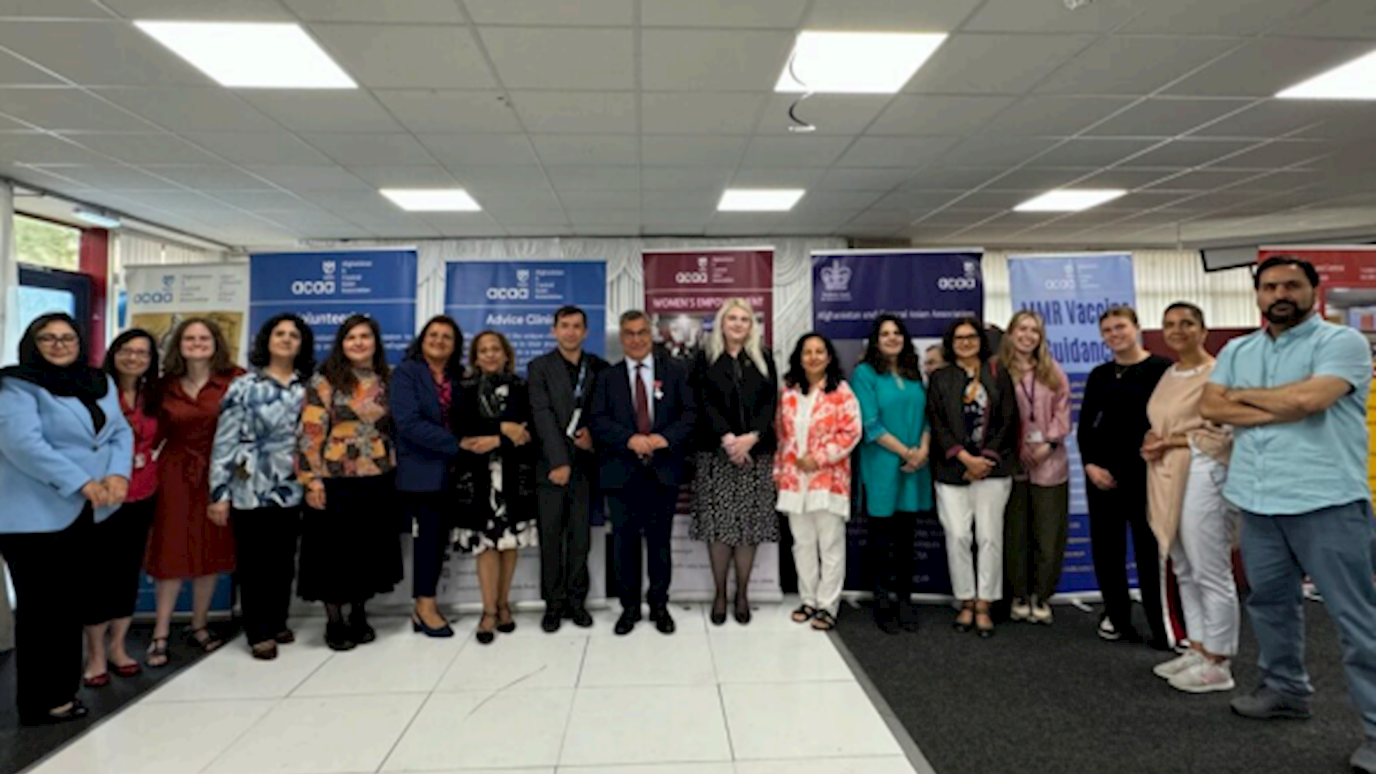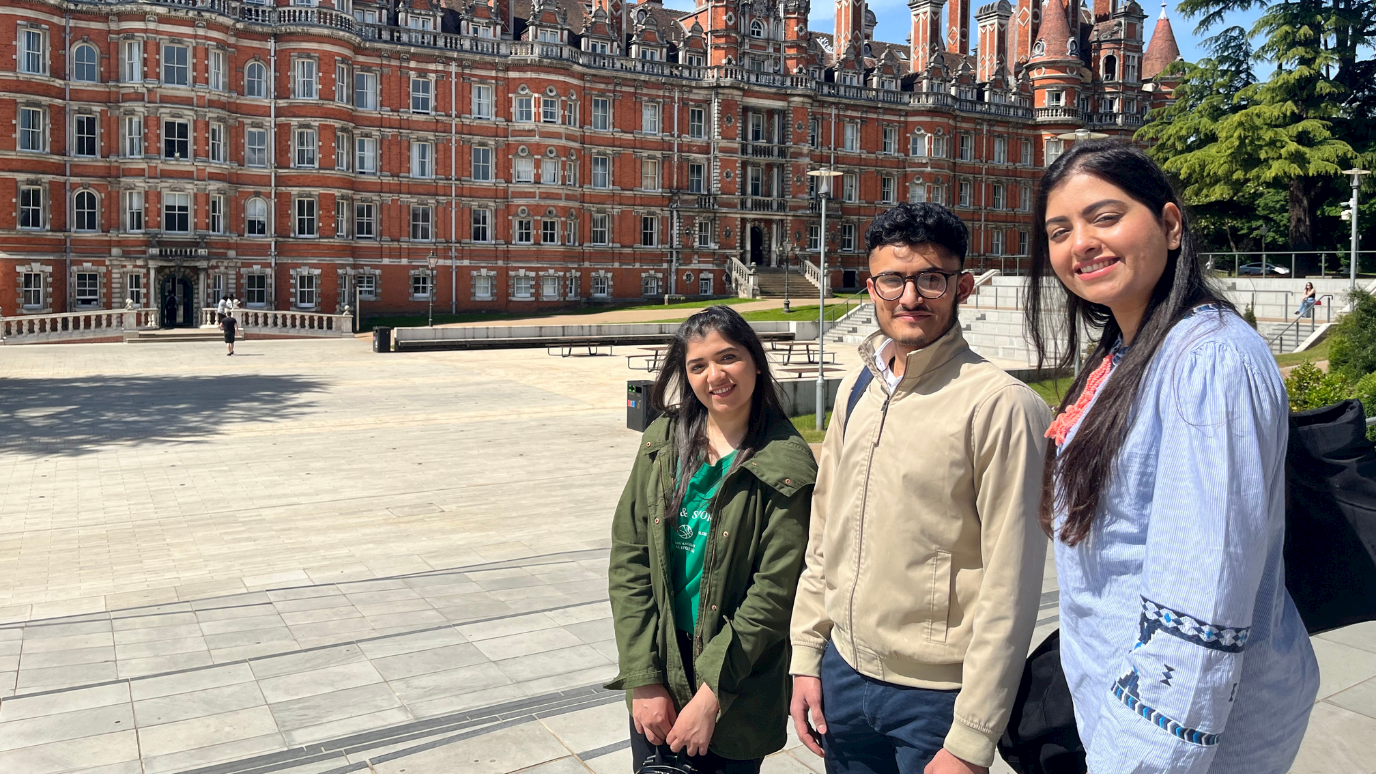In July, the Afghanistan and Central Asian Association (ACAA) hosted an event to present research findings on the needs and concerns of Afghan mothers in London.
Sheekeba Nasimi and Professors Anna Gupta and Ravinder Barn from Royal Holloway University joined representatives from the police, local schools, health providers, social services, and local councillors to discuss their research, “Understanding the Needs and Concerns of Refugee Parenting: A Case Study of Afghan Mothers’ Perspectives in London.”
Most importantly, this collective was joined by the Afghan mothers from the local community who had engaged with researchers and the ACAA. Over the past year, the mothers have come together in focus groups to express their needs and concerns regarding parenting in the UK after leaving Afghanistan. Despite the significant variation between each family, Afghan women shared concerns over education, employment, safety, health and happiness, belonging, and identity.
The team then presented ideas to local stakeholders about how we may address the issues at hand. Professor Gupta spoke about improving education, reforming professional practices, and expanding free, community-based services. By sharing the concerns of refugee mothers and outlining policies to resolve them, the ACAA hopes to increase understanding between local stakeholders and the refugee community. Indeed, Professor Gupta emphasised the importance of trust and sensitivity in community work, highlighting the fears Afghan mothers commonly feel when seeking help from authorities, and the need for a framework of partnership between stakeholders and Afghan mothers. This presentation was followed by vital contributions from Afghan mothers on their lived experiences of finding refuge in the UK and the struggles their families face, particularly regarding education and healthcare. One mother voiced her concerns about being present for her children while struggling with her own health conditions that often go unaddressed by the British healthcare system. She emphasised the difficulty refugees face in accessing NHS services, and the necessity for translators in healthcare environments to prevent miscommunication. Other testimonies highlighted the vulnerability of refugee children to peer pressure in educational settings, especially in regard to drug and gang activity. As one mother put it “we just want our children to learn like any other child”. These testimonies were quite moving and both spoke to the importance of the work of the ACAA and the need for change in the wider community.
This section of the event was particularly powerful in amplifying the voices of the women present and gaining insight into their own reflections on the work. All of the stakeholders we spoke to agreed that hearing from the women themselves about their lived experiences had been “insightful” and of great importance. For example, representatives from the Child and Young People Public Health Team at the Local Authority of Hounslow, told us that it had been “really useful to hear the voices of Afghan and Central Asian women which are seldom heard and seldom sought out by the council and services”.
A recurring theme throughout the question-and-answer session was the importance of shifting attitudes and practices, as well as policy. One mother poignantly discussed the disparaging way in which jobcentre authorities had spoken to her. Professor Barn suggested that sharing this research with the West London authorities and changing the training processes of staff would help to accelerate changes in staff attitudes towards refugees.
Stakeholders and attendees remarked on the success of the event. Iuliia Tsekhotska-Koc, a programme manager from Hillingdon Children’s Services, commented that “the event was both informative and welcoming”. Councillor Seema Kumar said that “we have identified areas of challenges and I hope that we can work forward effectively, progressively, and positively”.
It is apparent that this work by the ACAA and Royal Holloway will be crucial in improving the ability of the local authorities to serve the Afghan Community. As a local Social Prescriber put it, projects such as this are vital for “working together, understanding each other, and developing people’s lives”.
Special thanks to Sheekeba Nasimi, Professor Anna Gupta, and Professor Ravinder Barn, for their brilliant efforts in organising the event and presenting this vital research.
Writen by Scarlet Summers and Easha Kapur, Political Communications Interns (ACAA)























